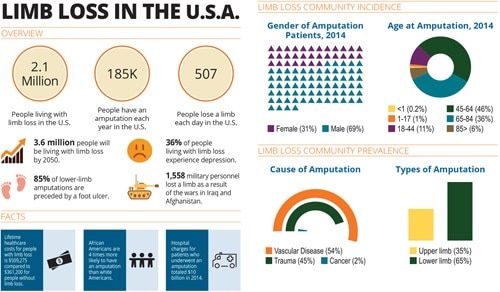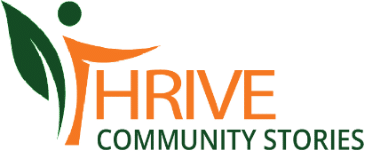The research article, “Living Well After Amputation: Lessons in Peer Support, and Health Policy,” was published in the December 2021 issue of Techniques in Orthopedics, a peer-reviewed journal that provides information on the latest orthopedic procedures as they are devised and used by leading orthopedic surgeons. The article was authored by Amputee Coalition leaders; board chair Jeffery J. Cain, MD, chief programs officer Daniel Ignaszewski, BA, and communication consultant Carol Blymire, MS.
The article reviews the current state of amputation in the U.S., resources available for people experiencing limb loss, trends in technology of prosthetics and surgery, current challenges for amputees, and specific collaborative steps for surgeons and health care teams to improve the care of people with limb loss.
More than 2 million people live with limb loss in the U.S., a number forecast to rise exponentially in the coming decade with the combination of increasing age of our population and rising incidence of both diabetes and peripheral vascular disease. For people with limb loss, broad changes in the care of amputees and our society over the last 30 years offer the opportunity for people with limb loss to live full and productive lives. As the only national consumer organization supporting those with limb loss and limb difference, the Amputee Coalition is committed to providing resources through its national programs and services such as the National Limb Loss Resource Center, the Certified Peer Visitor program, a support group network, publications, and advocacy programs. The article also features an infographic that details data statistics on the limb loss and limb difference population in the U.S.

As the need for the latest research on prevention, standards of care, and federal regulation increases, the Amputee Coalition continues national advocacy efforts to pass legislation and policies to advance support for amputees. The Amputee Coalition’s Peer Visitor Program is also an successful cornerstone, which offers trained volunteers who provide information and support for individuals about to undergo an amputation or who currently have limb loss or limb difference. Other support programs include support groups, hospital partnership programs, and youth camp. Together, through research and advocacy, we can implement policies, healthcare, and support that enable our community to live healthy and meaningful lives.

